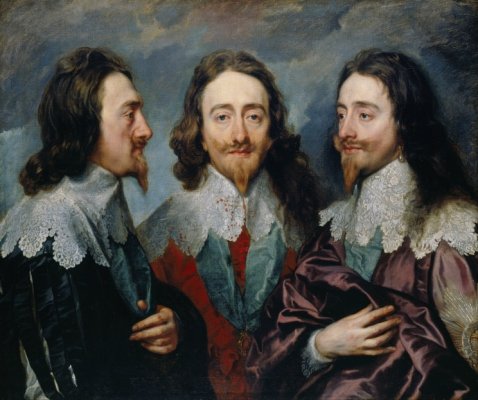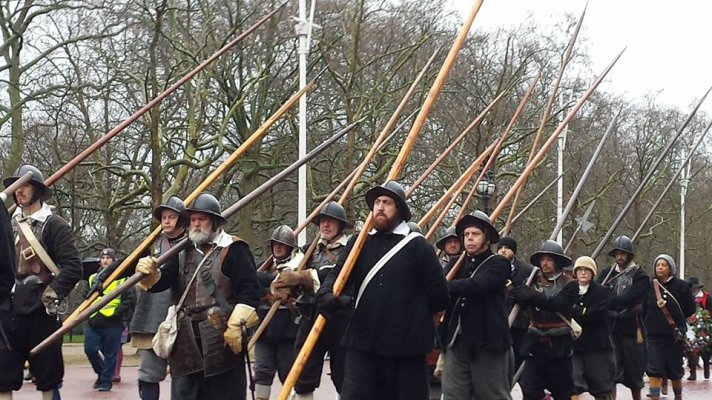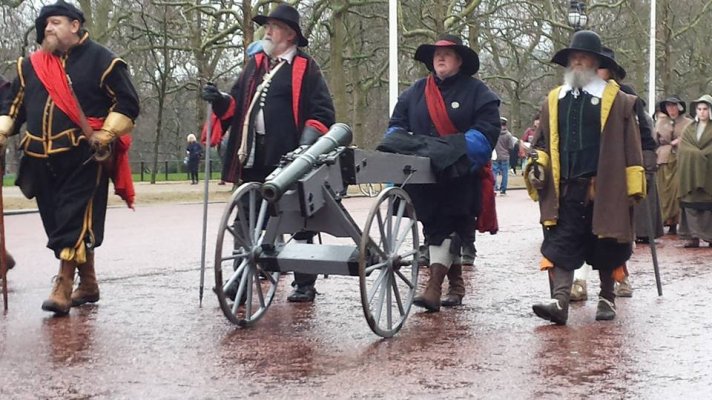KingCharles
Commoner
- Joined
- Dec 6, 2007
- Messages
- 31
- City
- London
- Country
- United Kingdom
One of the most controversial monarchs of this country and not even a mention here so I thought I would start the topic - King Charles I.
Some of you may or may not know that King Charles I was involved and perhaps instigated the English Civil War.
Along with other Stuart King's - Charles believed in the 'Divine Rights of Kings' which appalled Parliament and caused friction between the two parties.
At the time the King was an absolute ruler and did not reign as a constitutional monarch as we have in our country today.
Parliament suggested to the King about turning England into a constitutional monarchy because they had thought that Charles was out of control. Of course, Parliament got what they wanted with William and Mary as joint monarchs, of whom agreed that a constitutional monarchy would be the best way for the UK to progress.
Charles would not acknowledge the notion of being the national figurehead, while letting Parliament to make all the decisions of the land without any Royal interference or input.
Charles did not sign anything and created more problems for Parliament as he decided to dissolve parliament and did not call for them again until 11 years later when the King was - to put it bluntly - skint.
This is when Parliament thought this would be the best time to get what they wanted and proposed that the King accept a Bill which limited the powers of the monarchy on a whole and gave parliament more power in return for the money, Charles so desperately wanted.
Charles would never, and as a royalist myself, agree with him not backing down to parliamentary pressure.
When Charles attempted to arrest five members of parliament, namely Oliver Cromwell who ordered the execution of the King, this instantly caused parliament to form an army and initiate a civil war against the King and anyone who rallied to the monarch's cause.
Charles, lost, fled and was captured in the end - then with the coercement of Oliver Cromwell, members of parliament signed a death warrant for His Majesty after the ILLEGAL trial of Charles.
King Charles was the fount of justice in every sense of the word. He was above the law. So, the sentencing was illegal and un-justified.
I wonder what life would have been like if Charles had not been executed or in fact had won the Civil War. I personally, would like to see this country run by the monarchy instead of the monarch's ministers.
Charles - was a fantastic politician, a great leader and was a believer in his God given rights to rule.
I would like a debate on, in my opinion, the most prolific monarch this country has had along with King Henry VIII and King John.
God Save The King.
Some of you may or may not know that King Charles I was involved and perhaps instigated the English Civil War.
Along with other Stuart King's - Charles believed in the 'Divine Rights of Kings' which appalled Parliament and caused friction between the two parties.
At the time the King was an absolute ruler and did not reign as a constitutional monarch as we have in our country today.
Parliament suggested to the King about turning England into a constitutional monarchy because they had thought that Charles was out of control. Of course, Parliament got what they wanted with William and Mary as joint monarchs, of whom agreed that a constitutional monarchy would be the best way for the UK to progress.
Charles would not acknowledge the notion of being the national figurehead, while letting Parliament to make all the decisions of the land without any Royal interference or input.
Charles did not sign anything and created more problems for Parliament as he decided to dissolve parliament and did not call for them again until 11 years later when the King was - to put it bluntly - skint.
This is when Parliament thought this would be the best time to get what they wanted and proposed that the King accept a Bill which limited the powers of the monarchy on a whole and gave parliament more power in return for the money, Charles so desperately wanted.
Charles would never, and as a royalist myself, agree with him not backing down to parliamentary pressure.
When Charles attempted to arrest five members of parliament, namely Oliver Cromwell who ordered the execution of the King, this instantly caused parliament to form an army and initiate a civil war against the King and anyone who rallied to the monarch's cause.
Charles, lost, fled and was captured in the end - then with the coercement of Oliver Cromwell, members of parliament signed a death warrant for His Majesty after the ILLEGAL trial of Charles.
King Charles was the fount of justice in every sense of the word. He was above the law. So, the sentencing was illegal and un-justified.
I wonder what life would have been like if Charles had not been executed or in fact had won the Civil War. I personally, would like to see this country run by the monarchy instead of the monarch's ministers.
Charles - was a fantastic politician, a great leader and was a believer in his God given rights to rule.
I would like a debate on, in my opinion, the most prolific monarch this country has had along with King Henry VIII and King John.
God Save The King.









 For me, Charles I and Henrietta Maria are some of the most interesting historical British monarchs and yet despite the drama of their lives and Charles historical importance, there is very little media attention. I think that's a shame, as the seventeenth century was very interesting and still very relevant, and something about Charles reign and the civil war would make a really awesome TV series - if they can do queen vic and QE2 than why not the man who lost it all? Probably because most UK (and by proxy most anglophone) viewers don't want to see something about a time when Britain was deeply divided, lacking international influence, and on the verge of collapse.
For me, Charles I and Henrietta Maria are some of the most interesting historical British monarchs and yet despite the drama of their lives and Charles historical importance, there is very little media attention. I think that's a shame, as the seventeenth century was very interesting and still very relevant, and something about Charles reign and the civil war would make a really awesome TV series - if they can do queen vic and QE2 than why not the man who lost it all? Probably because most UK (and by proxy most anglophone) viewers don't want to see something about a time when Britain was deeply divided, lacking international influence, and on the verge of collapse.